Several of Columbia Southern University’s College of Safety and Emergency Services professors are on double-duty as they join the front lines of the fight against the COVID-19 pandemic in the U.S.
These members of CSU’s faculty, whose expertise spans across a variety of public safety topics including criminal justice, emergency medical services administration, emergency services management, fire science, homeland security and occupational safety and health, are doing their all to combat the current crisis while still teaching others how to save lives.
According to College of Safety and Emergency Services dean Misti Kill, Ph.D., members of the faculty are stationed everywhere from Washington to Georgia.
In fact, Jeff Faucett, the assistant chief of operations for South Kitsap (Washington) Fire and Rescue, has been “directing and leading our response teams, including heading the district response to this crisis. I have developed our IAP, built an ICS plan for our response, changed our deployment strategies, and planned for the unfortunate event of a community outbreak, including our response personnel.” He is a fire instructor for CSU who has worked for more than 20 years with the Port Orchard, Washington department.
Fellow Washingtonian Thomas Maloney, also a fire instructor, is deputy chief/fire marshal in Marysville, Washington and his department is helping transport confirmed COVID-19 patients.
North Las Vegas Deputy Fire Chief Travis Anderson, who is the city’s emergency manager, is working with its emergency operations center to secure supplies and meet the needs of first-responders. He is teaches fire science full-time at CSU.
“Not only are we faculty here, we’re also front-line professionals ourselves,” said Aaron Rhone, Ph.D., emergency medical services administration professor. Rhone was assigned to the Pennsylvania Department of Health’s Emergency Operations Center at the Pennsylvania Emergency Management Agency (PEMA) headquarters in Harrisburg, Pennsylvania.
“I’ve been sending out personal protection equipment (PPE) to ensure that our front-line health care workers, our EMS providers, our first-responders of all sorts are taken care of in this fight against COVID-19,” he said.
Ralph Blessing is another CSU professor working in Pennsylvania. “I am working with the Pittsburg US Corps of Engineers and involved in the remediation of 52 of their facilities in the Ohio, West Virginia and Pennsylvania areas,” said Blessing, who teaches occupational safety and health. “This entails going in and doing the cleaning of over 330,000 square feet of buildings.”
Also working in Pennsylvania is Daniel Coss, D.Sc., CPP, CHSP, CHEP, who teaches emergency services management. He is currently serving as the incident management assistance team leader in East Stroudsburg, Pennsylvania. Coss summed up his thoughts in one response: “We teach our students what we do. We are academic practitioners.”
Occupational safety and health professor Ryan Miller is also helping response personnel dealing with COVID-19 as a safety and health professional in the Technical Hazard Response Unit of the FBI Laboratory. “During the current crisis, I have provided extensive telephone and email guidance to FBI field offices on matters related to respiratory protection, as well as creating guidance documents for our 1,700 plus forensic response personnel throughout the FBI.”
Likewise, fellow OSH professor William Pate, program director for radiation and occupational safety at The University of Texas Medical Branch in Galveston, Texas, is managing the respiratory protection program, PPE recommendations including evaluation methods for n95 decontamination and reuse, evaluating homemade PPE and other virus related safety issues.
Douglas Wehmeyer, who teaches fire science, was called to serve in Ohio.
“I am currently serving as the operations and planning section chief for the Deerfield Township emergency operations center,” said Wehmeyer. “The coronavirus has challenged emergency responders and calls us to rethink how we handle the routine responses that we make on a daily basis. The key for us is ensuring that we keep our community safe while ensuring the operational staff of our fire department is maintained as well.”
Steve Agenbroad, another CSU fire instructor, is serving with Wehmeyer as the Warren County, Ohio, fire chief representative in the unified command at the county’s emergency operations center.
Fellow mid-Westerner and fire instructor Tim Whitham has been the incident commander for the departments in his area treating and transporting COVID-19 patients. The Edwardsville, Kansas fire chief said, “I have also participated in daily phone calls of all the emergency services agencies in the Kansas City Metro area as well as providing the appropriate PPE and decontamination to exposed law enforcement officers.”
As an online university that has students in all 50 states, CSU’s faculty members live and work nationwide. Many professors are continuing to serve in their home communities, while some, like Karen Grabenstein, have been deployed to other areas of the country.
Adjunct professor and veteran paramedic Karen Grabenstein has been assigned to the Unified Command Center for the state of New York. She is the vice chair of the executive board of the Georgia Emergency Medical Services Association and president of the group’s educators division. She teaches emergency medical services administration for CSU.
“I have interacted via email with several of my current students who are serving New York City in various aspects for COVID-19. It is incredible to think how many people I am working with are current, past and future CSU students,” she said. “They are making a difference in New York City/New Jersey and I have to believe passion and education are coming together to produce a result that will help alleviate the stressors placed on these cities and bring humanity back.”
David Becker also traveled to aid in the fight as he went from Missouri to join the International Associations of Fire Chiefs in Chantilly, Virginia. He is working with the group’s COVID-19 and Economic Crisis task forces and its Lessoned Learned Group.
“I am attending webinars, coordinating meetings for the two task forces and answering numerous emails and phone calls while working in the Emergency Operations Center. I attend a daily command staff meeting and work with IAFC staff on providing information to the fire service and EMS,” said Becker who teaches emergency medical services administration courses.
“I attend calls with NHTSA, FEMA, the White House and other government groups as they work to mitigate this pandemic,” he added.
Meanwhile, Landry Merkison, has his hands full in Clayton County as the fire chief, EMS director, and the director of emergency management. “I am currently responsible for coordinating the response for the unincorporated parts of the county, plus six of our cities.”
The CSU fire professor added, “In addition to our normal 52,000 plus calls a year, the response to the coronavirus has been challenging to say the least.”
In Florida, Hezedean Smith, who teaches emergency medical services administration, is busy working as assistant chief in EMS operations with the Orlando Fire Department’s effort to support the area’s emergency operation center.
“I have been assigned as the Epidemic Intelligence/Investigation Section chief in addition to my other duties. The scope of the Intel Section chief involves gathering data and other information from all sources secondary to exposures, potential cases, employee exposure, and coordination with the additional section chiefs,” he explained.
Other CSU professors aiding in the fight against COVID-19 include:
• Dan Gaumont, a fire instructor, working in the Navy Fire Headquarters in Washington D.C.
• Paul Baumgartner, an OSH instructor, heads a global contract research organization and is assisting a South African client expedite their non-alcohol based hand/surface sanitizer R&D process to completion
• Steven Gillespie, Ed.D., a fire instructor, is coordinating state dispatch operations and working on contingency plans in Colorado
• Felix Acevedo, Ph.D., an emergency medical services administration professor, is managing the area hospital command center and planning section chief in Las Vegas.
• George McCord, who teaches homeland security courses, is working in the planning section with the Broward County (Florida) Sheriff’s Office in its fight against the virus
• Keyomie Townsend, an information technology professor, is managing a digital forensic program for law enforcement support for three states during the COVID-19 pandemic.
• DJ Phalen, an instructor for homeland security, was been working since late February with the San Diego County Departmental Operations Center /Medical Operations Center, the Health Services Capacity Task Force, and several other government workgroups as part of the healthcare infrastructure responding to COVID-19.
Disclaimer: These testimonials may not reflect the experience of all CSU students.
Multiple factors, including prior experience, geography, and degree field, affect career outcomes.
CSU does not guarantee a job, promotion, salary increase, eligibility for a position, or other career growth.

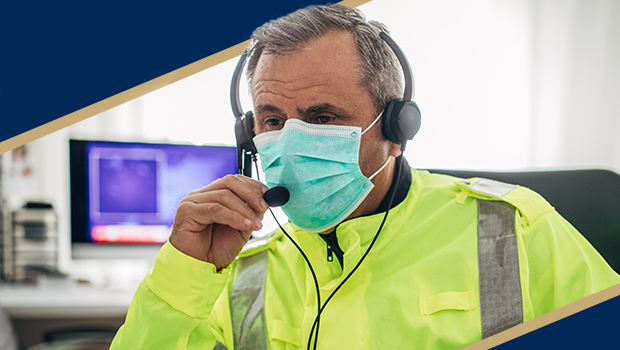


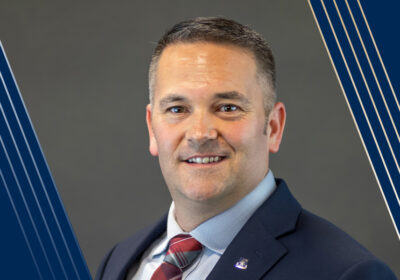
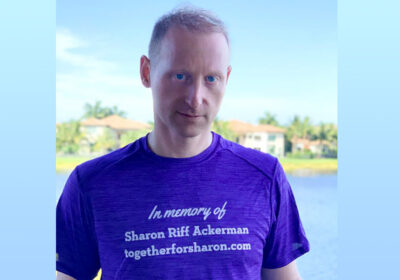
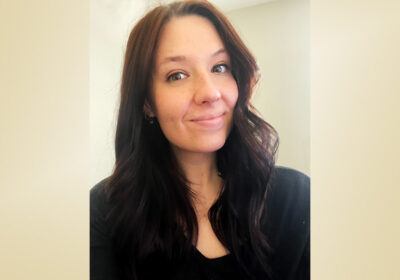



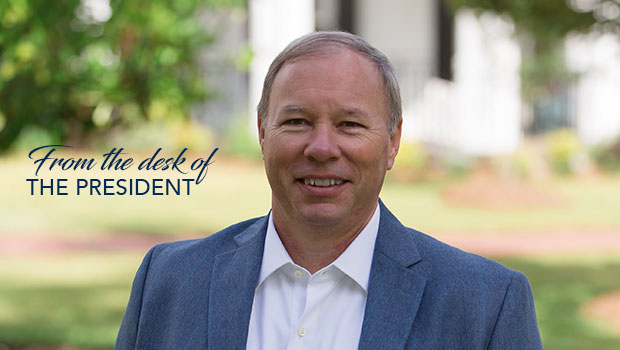
I am so impressed to see that these instructors, several of whom I have had for my classes, are part of real world situations. This gives them the knowledge and expertise I need as I take classes from CSU. I too am right in the thick of things with the Corona-virus pandemic. As a safety specialist for the Virginia Department of Corrections I spend each day looking for ways to keep the virus from coming into the prison and infecting the offenders. I have written sanitation procedures, taught proper cleaning techniques to staff and offenders, as well as perform fit testing of officers and nursing staff for our medical units.
I am part of a response team that goes into prisons to sanitize the facility and cells as needed and I have been tasked with tracking and maintaining our PPE levels so the officer and medical staff have the supplies they need to do their job.
I am proud to attend a school where the instructors can relate to us and what we do. I love CSU!!
Good morning, James. Thank you for taking the time to share your thoughts. We are so glad you enjoyed hearing about the CSU professor’s response to COVID-19 and we are proud of how much you are doing in your role, as well!
Thank you for being such an awesome part of the CSU family.
Sincerely,
Libby Reilly
Communications Coordinator
CSU Marketing
I have been helping as well as an EMT with Ambulnz for the FEMA Contract with City of Philadelphia Covid Surge at Liacordas Center – Temple University. Transporting Covid positive patients to this freestanding hospital setup in the basketball stadium with the help of PA TF 1 and US Army National Guard.
Albert V. Condello III Ph.D CSP CHMM NREMT
MS OSH Class of 2011
Cell 814-359-6939
Good morning, Albert! Thank you so much for taking the time to share your thoughts and experience with us. If you would like, you may fill out this short testimonial form and then I will be in touch with any follow-up questions: https://bit.ly/2A7vtMJ
Thank you!
Libby Reilly
Communications Coordinator
CSU Marketing